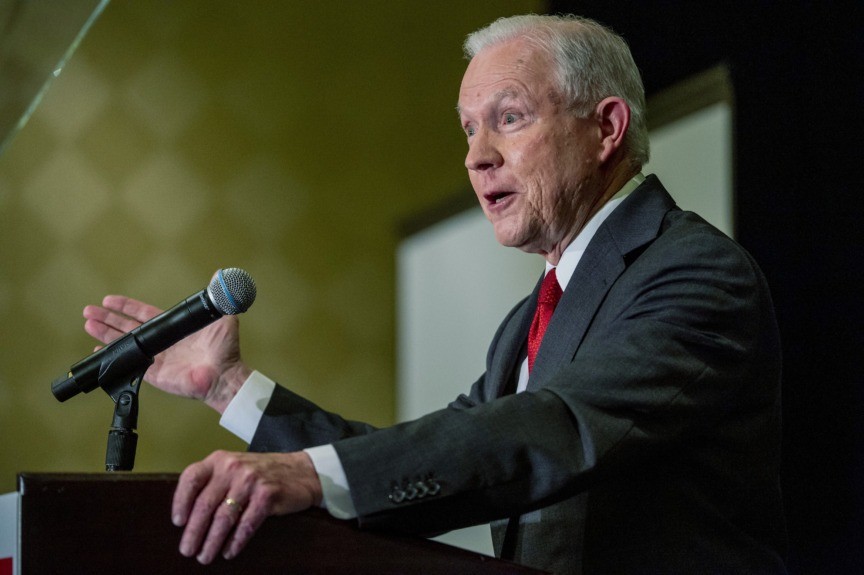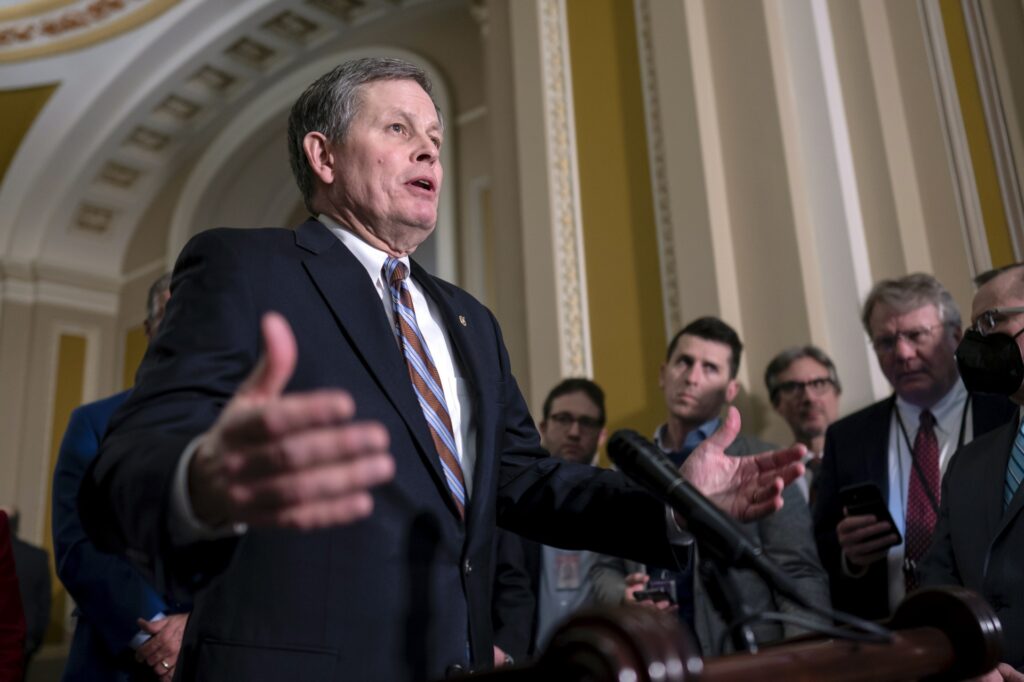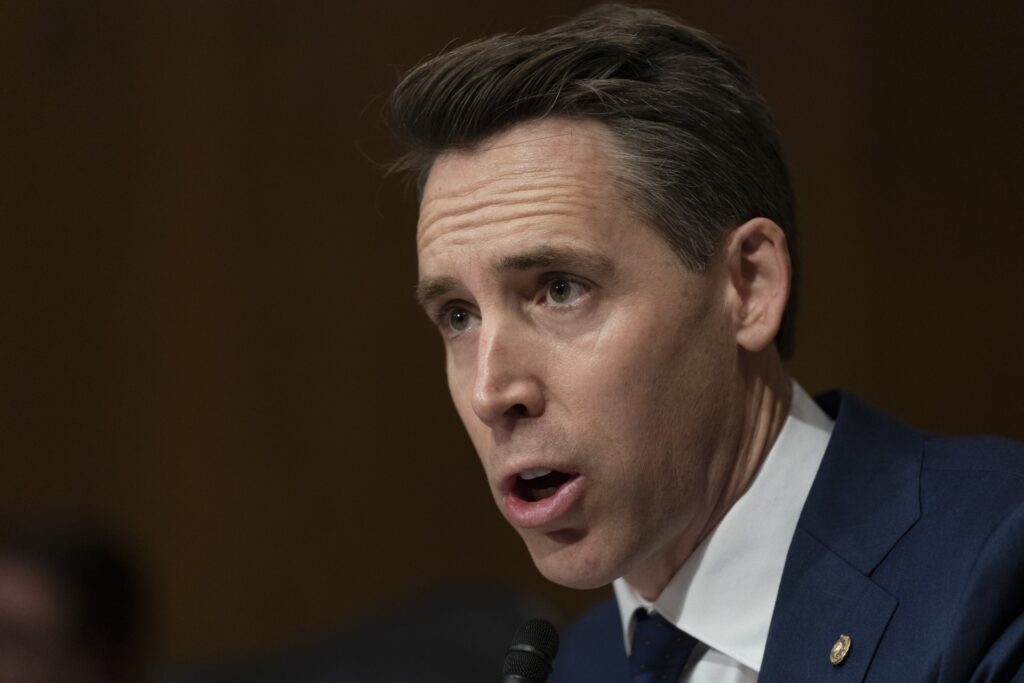Republicans are increasingly cutting their reliance on corporate donors and turning to small-dollar donors instead as they push forward with a nationalist-populist legislative agenda, an analysis from the Wall Street Journal finds.
“Republicans are now less dependent on corporate and industry PACs than at any time in the past three decades, according to a Wall Street Journal analysis based on data from the nonpartisan Center for Responsive Politics,” the report reveals.
In 2015, then-Sen. Jeff Sessions (R-AL) fought tirelessly to move the GOP away from its alliance with Wall Street and the United States Chamber of Commerce, toward its voters with a populist agenda.

Jeff Sessions addresses the crowd at his watch party following Alabama’s state primary, Tuesday, March 3, 2020, in Mobile, AL. (AP Photo/Vasha Hunt)
Sessions’ goal was to have Republicans represent the interests of small businesses against multinational corporations, union workers against corrupt Democrat-aligned union leadership, American workers against waves of illegal immigration, working-class communities against decades of outsourcing, and military families against foreign wars.
Since then, small-dollar donors are a rising fixture with Republicans running for office, aligning them with the populist viewpoints of their constituents who, by majorities, say free trade, mass immigration, and corporate consolidation of industries are a threat to the American way of life.
The shift has been clear for House Speaker Kevin McCarthy (R-CA) where, in 2016, more than 40 percent of his reelection campaign funds came from corporate political action committees (PACs). By 2022, corporate PACs made up less than three percent of McCarthy’s donors.
Meanwhile, every Senate Republican incumbent has reduced their corporate PAC donations from 2016 to 2022. Since former President Donald Trump’s historic victory in 2016, the Senate GOP has elected a wave of national populists — including Sens. Marsha Blackburn (R-TN), Bill Hagerty (R-TN), Josh Hawley (R-MO), J.D. Vance (R-OH), Katie Britt (R-AL), Ted Budd (R-NC), and Markwayne Mullin (R-OK).
Other Senate Republicans, elected before Trump’s 2016 win, have made a hard right shift toward populism, such as Sens. Marco Rubio (R-FL), Steve Daines (R-MT), and Tom Cotton (R-AR).

Sen. Steve Daines (R-MT) speaks during a news conference at the Capitol in Washington, Feb. 14, 2023. (AP Photo/J. Scott Applewhite, File)
“Gone are the days that Republicans are going to sit on the sidelines as big behemoths take advantage of the American people,” Blackburn told the Journal. “We are going to hold them accountable.”
In 2014, corporate PAC donations accounted for about 25 percent of Daines’ campaign funds while running for his seat, the Journal noted. By 2020, Daines cut his reliance on corporate donors with only about ten percent of his reelection funds coming from such PACs. Instead, he shifted focus to garnering small-dollar donations from Montana voters.
The shift is not only playing out with campaign contributions but also legislation.
Vance, for example, continues to garner support among Senate Republicans for his bipartisan “Railway Safety Act,” which would serve as landmark legislation to protect American communities like East Palestine, Ohio, from train derailments spurred by powerful rail corporations.
The rail reforms are co-sponsored by Rubio and Hawley as well as Sens. Mike Braun (R-IN), Mitt Romney (R-UT), and Roger Marshall (R-KS). Conservative beltway groups, some funded by the Koch network and rail companies, along with Sen. Ted Cruz (R-TX), also funded by the rail companies, are opposing the legislation.
Then there are Cotton’s plans to decouple the U.S. from China — a fair trade initiative that would have been denounced by the party establishment just a decade ago.
Cotton filed a bill in January to end the nation’s free trade policy with China, gaining support from Vance, Budd, and Sen. Rick Scott (R-FL). A nearly identical bill was also filed by Hawley.

Sen. Josh Hawley (R-MO) questions Colleen Shogan, nominee to be archivist of the U.S. National Archives and Records Administration during the Senate Homeland Security and Governmental Affairs Committee full committee hearing on Shogan’s nomination on Capitol Hill in Washington, Tuesday, Feb. 28, 2023. (AP Photo/Manuel Balce Ceneta)
Likewise, Cotton and Britt are authoring legislation to ban Chinese nationals and companies from buying up real estate across the U.S. Vance has previously said he supports such rules.
In terms of reining in corporation consolidation, even establishment Republicans have come on board in recent years.
A bill from Sen. Chuck Grassley (R-IA), co-sponsored by Daines and others, would give the Agriculture Department more power to investigate anti-competitive business practices as four meatpacking corporations now control more than 80 percent of the market. The bill gained co-sponsors like Sens. Mike Rounds (R-SD), John Thune (R-SD), John Hoeven (R-ND), and Cindy Hyde-Smith (R-MS).
Perhaps the GOP’s populist shift has been the most profound on the issue of immigration where the federal government’s current policy brings more than a million foreign nationals to the U.S. annually on green cards, another million on temporary work visas, and hundreds of thousands, potentially millions, illegally.
Months ago, Britt unveiled the “Asylum Abuse Reduction Act” which would effectively end the policy of catching and releasing border crossers and illegal aliens into the U.S. interior.
Also, and most prominently, the bill codifies into law a third safe country rule that requires foreign nationals to seek asylum in Mexico before they are allowed to claim asylum in the U.S. The impact would likely be a historic reduction in illegal immigration at the southern border.
Cotton, Mullin, and a number of other Senate Republicans are cosponsoring the bill.
Related: Drone Footage Shows LONG LINES of Immigrants Gathered at El Paso Border
NEWSNATION/TMXJohn Binder is a reporter for Breitbart News. Email him at jbinder@breitbart.com. Follow him on Twitter here.

COMMENTS
Please let us know if you're having issues with commenting.